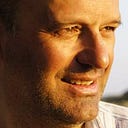Belgium has a chance to make history
There will be a before and an after summer 2021. Economy and society will never be the same after this precise moment in history. Dozens of fundamentals are converging — and this fall it is « time for truth ». Post-covid-plan deployments, post confinement psychological hangovers for over 50% of the population, domino of bankruptcies, green deal, digitalisation and robotization, talent hunt in an aging world, re-invent business models for purpose and positive impact, legal barriers to negative environmental impacts,… there where most of us are still in managing urgency…
A new expert collective has emerged, clustered around systemic thinking, crisis, chaos and complexity management, eco-systemic multi-solution business models, territorial collaborative leverage. Club of Brussels. They have come to the conclusion that « traditional » management of the upcoming historical challenges will not happen because of the colossal cost, the lack of trained young, collaborative human resources, and the lack of time because of legal calls for tenders. The solution might be in systemic territorial approaches. Collaborative, and serving historical challenges. Test-cases have proven their efficiency in several cities.
The collective of over 50 experts with diverse and major expertise have gathered in Brussels, and decided too consolidate the best-in-class examples, methods, models, programs, and create a true school of economic thinking. Belgium is an ideal test-market for these, combining the much appreciated « flemish pragmatism » with the « latin creativity ». These will be easily exported to all continents, with care of adaptation to local contexts. The Belgian entrepreneur has since always been very appreciated worldwide — especially in the 19th and early 20th century with engineers, chemists, builders, steel industry, machinery,…
We can guess that sticking post-covid plans to old school political agendas will not benefit from multiple leverage through collaboration and involvement of citizens. “They” have only one chance left, actually. After 2024, assessments will be done, and names will be remembered. One way or the other. Holistic “multiple-helix” collaborations (public services, companies, citizens, academics, media,…) for relocalizing economy in regenerative models will certainly help, but will require major cultural shifts. Local growth and resilience is easily catalyzable with stakeholders’ eco-system activation. This will only happen - first - in smaller « Islands of resilience ». They will become inspiring examples for larger deployment. Humility and collaborative leadership will be necessary.
Belgium will have to reinvent itself, fast, or will go down the drain as a sclerotic and spoiled post-growth society. Demography is old and costly, and youth is mobile. They know. And they will leave, or engage… it will all depend on whether humility and collaborative leadership will emerge in time or not.
What has been achieved by Club of Brussels :
- An economic model — systemic economy — developed to by design regenerate people, planet and business itself, which leverages the use of tangible and intangible resources.
- A methodology, made accessible to all, deployed 10 times over 4 years, in programs from 6 to 12 weeks in living labs as well as in academic and executive circles.
- A first inventory of over 40 concrete business models and results on the field in 4 continents, in various industries and societal areas.
- An expert network mastermind with global alliances over 4 continents.
- The mathematical evidence that concentric-systemic multipliers of multisolutions are the way to go for “g-local” transition and planetary resilience.
What has to be done in the next 12 months to reap benefits of this historical opportunity:
- Consolidate global, academic and field alliances with humble and courageous impact players.
- Make the resources widely accessible to a larger public with publications, videos and advocacy.
- Vulgarize and educate leaders and masses to eco-systemic business-models and holistic problem-solving approaches.
- Scale up exponentially the living labs on multiple territories.
- Plug into territorial and sectorial data intelligence.
- Regular events in 4 continents with masterminds.
- Implement an open source « Solution Bank » for templates and scale ups.
- Massively train trainers.
- Massive crowdfunding for financing the school of economic thinking,
- And crowdsourcing knowledge, inspiring examples, for exponential development.
Join us. Lets do this.
Prof. Michel de Kemmeter
